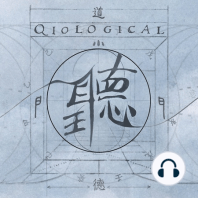40 min listen

233 Teaching, Learning and the Music of Medicine • Etienne Simard
233 Teaching, Learning and the Music of Medicine • Etienne Simard
ratings:
Length:
81 minutes
Released:
Jan 4, 2022
Format:
Podcast episode
Description
“The poets did well to conjoin music and medicine, in Apollo, because the office of medicine is but to tune the curious harp of man's body and reduce it to harmony.”― Francis BaconMusic and Medicine have a lot in common. In the deepest sense, medicine is a kind of performance. Like mastering musical instruments and tones, Chinese Medicine is only effective when it moves through theoretical and experiential cycles of learning. This includes lessons from teachers, hands-on experience, reflective observation (what went wrong and what went right in treatment), and conceptualization (why things happened the way they did). In this conversation with Etienne Simard, we noodle over the idea of finding the right instrument and tone to help people as both a teacher of Chinese Medicine and as an acupuncturist. We talk about using the needle like you would use a melody to interact with somebody’s Qi, presence in practice, and learning on the job, among other topics.Listen into this discussion on the confluence of music and medicine. Both are different yet so alike.
Released:
Jan 4, 2022
Format:
Podcast episode
Titles in the series (100)
006 Value, Integrity, Responsibility- the path to prosperity • Lorne Brown by Qiological Podcast